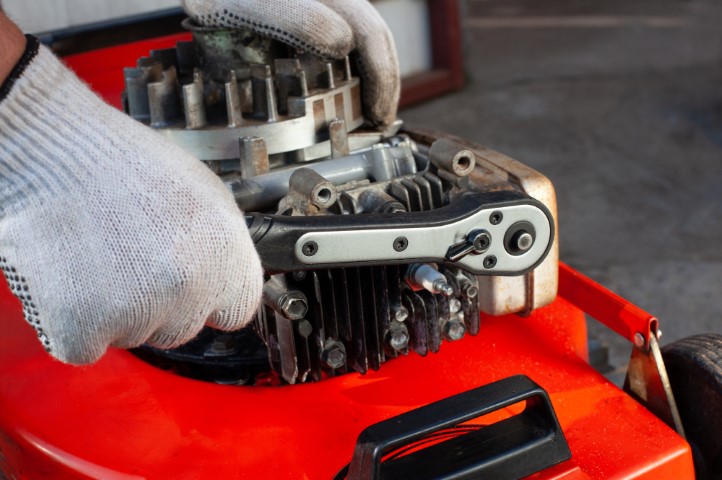 A hard-starting engine can be a frustrating experience for any vehicle owner. Whether it’s your car, motorcycle, or lawnmower, a slow or unresponsive engine can delay your plans and leave you feeling stranded. Fortunately, there are several remedies and troubleshooting techniques that can help resolve this issue. This article aims to explore common reasons for hard-starting engines and provide practical remedies to get your engine up and running smoothly, often using just common tools or workshop consumables.
A hard-starting engine can be a frustrating experience for any vehicle owner. Whether it’s your car, motorcycle, or lawnmower, a slow or unresponsive engine can delay your plans and leave you feeling stranded. Fortunately, there are several remedies and troubleshooting techniques that can help resolve this issue. This article aims to explore common reasons for hard-starting engines and provide practical remedies to get your engine up and running smoothly, often using just common tools or workshop consumables.
Common Causes of Hard-Starting Engines
Fuel Delivery Issues: One of the most common culprits behind hard-starting engines is fuel delivery problems. This can be caused by clogged fuel filters, a faulty fuel pump, hose clamps, or a blocked fuel line. An inadequate fuel supply leads to an insufficient mixture, resulting in difficulty starting the engine.
Ignition System Problems: Faulty spark plugs, ignition coils, or ignition timing can significantly impact the starting process. If the spark plugs do not produce a strong spark or are worn out, the combustion process may be compromised, leading to a hard-starting engine.
Battery Issues: Weak or discharged batteries may struggle to provide enough power to turn the engine over, resulting in slow cranking and difficulty starting the vehicle.
Mechanical Problems: Engine components such as valves, pistons, or timing belts may wear out over time, causing compression issues that affect engine starting. Additionally, a worn-out starter motor or a malfunctioning solenoid can also contribute to the problem.
Remedies for Hard-Starting Engines
Check Fuel Delivery System:
Inspect the fuel filter for clogs and replace it if necessary.
Test the fuel pump’s pressure using a fuel pressure gauge and replace it if it fails to meet the manufacturer’s specifications.
Ensure the fuel line is free from obstructions and inspect it for leaks. Repair or replace damaged lines as required.
Address Ignition System Problems:
Replace worn-out spark plugs with new ones and ensure they are correctly gapped.
Inspect ignition coils for signs of damage or corrosion. Replace them if necessary.
Verify that the ignition timing is set correctly according to the manufacturer’s specifications. Adjust if required.
Resolve Battery Issues:
Check the battery voltage using a multimeter. If the voltage is low, recharge the battery or replace it if it no longer holds a charge.
Inspect the battery terminals and clean them if corroded. Tighten loose connections to ensure a proper electrical connection.
Investigate Mechanical Problems:
If you suspect compression issues, perform a compression test to measure the cylinder pressure. Low compression may indicate problems with valves, pistons, or piston rings. Consult a mechanic for further diagnosis and repairs.
If the starter motor is faulty, consider replacing it. Ensure the battery is disconnected before removing and installing the starter.
Check the starter solenoid for proper operation. If defective, replace it with a new one.
Additional Tips:
Ensure the engine is properly warmed up before attempting to start it, especially in colder weather. Cold engines require more fuel and a stronger spark to start smoothly.
Use the appropriate grade of fuel recommended by the manufacturer to prevent starting issues caused by poor fuel quality.
Maintain regular vehicle servicing and follow the manufacturer’s recommended maintenance schedule to prevent potential starting problems.
Conclusion
A hard-starting engine can be a frustrating experience, but with the right remedies, you can overcome this issue and restore a smooth engine starting. By addressing fuel delivery, ignition system, battery, and mechanical problems, you can significantly improve the starting performance of your vehicle. However, if
the issue persists even after attempting the remedies mentioned, it is advisable to seek professional assistance from a qualified mechanic. They have the expertise and diagnostic tools to identify and resolve complex engine starting problems.
Remember, regular maintenance and proactive troubleshooting can help prevent hard-starting issues in the future. Keeping up with routine checks, such as changing the oil, replacing filters, and inspecting spark plugs, can go a long way in maintaining a healthy engine.
In summary, a hard-starting engine can be caused by various factors, including fuel delivery issues, ignition system problems, battery-related issues, and mechanical problems. Systematically addressing these areas and following the suggested remedies can increase the chances of resolving the problem and restoring smooth engine starting.
However, it is important to note that not all engine starting issues can be fixed through simple remedies. Complex mechanical issues or electrical faults may require professional attention. If you are unsure or unable to diagnose the problem yourself, it is recommended to consult a qualified mechanic who can provide an accurate diagnosis and appropriate repairs.
Taking care of your vehicle’s starting system and promptly addressing any issues will ensure a smoother and more reliable engine start and contribute to your vehicle’s overall longevity and performance.










